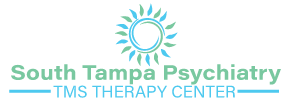Transcranial Magnetic Stimulation, or TMS, is a therapy that treats stubborn depression. Mostly, it benefits clients who have not found relief through medication or other approaches such as psychotherapy. TMS therapy for depression treatment focuses on magnetic pulses on the area of the brain that affects mood and provides relief to clients who don’t respond to more traditional treatment. If you’re battling depression, and medication and behavioral therapies just aren’t working, transcranial magnetic stimulation may help. Contact a Florida TMS therapy program like the one offered at South Tampa Psychiatry.
Is TMS Therapy for Depression Treatment Invasive?
TMS is a noninvasive form of treatment that generates outside the body. Standard procedure involves daily sessions up to five days a week. The course of treatment typically lasts for a minimum of five weeks. It’s a painless procedure, though some clients have reported experiencing a headache immediately following treatment.
During the procedure, an electromagnetic coil is placed on the skin near the forehead. This sends pulses to stimulate the nerve cells that are dormant or sluggish in people who suffer from depression. Activating nerve cells in the area of the brain that regulates mood has shown good results in relieving depressive symptoms for many years after treatment ends.
What Are the Benefits of TMS Therapy for Depression Treatment?
Benefits of TMS therapy include the lessening or disappearance of depressive symptoms without the use of more invasive treatments such as electro-convulsive therapy(ECT). One round of treatment may be all that’s needed to cure depression for life, but some clients may have to repeat the sessions once every few years. TMS followed up with medication, and psychotherapy is a standard course of treatment for clients struggling with stubborn depression. If you’re struggling, reach out today.
Who Is a Good Candidate for TMS?
Someone who suffers from depression and can’t find relief through more traditional treatments may be a right candidate for Transcranial Magnetic Stimulation. Much less invasive than ECT treatments, TMS does not require having electrodes attached to your skin. It’s a well-tolerated treatment for depression that usually offers only mild side-effects such as temporary headache or tingling of the skin where the coil was placed.
Some clients should not have TMS therapy. These may include clients who are pregnant or who have a seizure disorder such as epilepsy. Clients who have implanted devices such as stents or pacemakers may not be good candidates for TMS therapy for depression treatment. If you’re considering TMS in your course of treatment, talk with your doctor about any risks or concerns you may have.
TMS Therapy for Depression Treatment Methods
If you need assistance in finding relief from stubborn depression, and other forms of treatment aren’t helping, you may be able to find comfort at the South Tampa Psychiatry Center. We offer a range of treatments for mental health disorders, including treatment for:
We have friendly and compassionate representatives waiting to take your call at 866.273.5017. When you reach out to South Tampa Psychiatry, you’re taking a valuable first step in regaining control over your life. Depression is not a condition you have to live with. It is possible to find relief — even for the most stubborn types of this mental illness. Imagine a day that begins with hope. Envision an afternoon filled with happy anticipation and enjoyment. Picture a peaceful night’s sleep, uninterrupted by restlessness and bad dreams. These can be yours when you seek treatment for stubborn depression. Call 866.273.5017 today for more information on the benefits of TMS therapy for depression treatment and whether it might be right for you.







